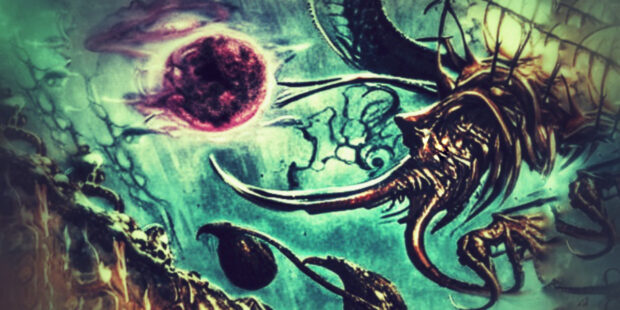The Vagueness of the Gods
That the Mythos gods created by the Howard–Lovecraft Circle are only loosely assembled as a pantheon and only vaguely defined individually is not a problem but a boon—they’re templates you can work with as a writer and make of them whatever you wish and what your stories need.
And that—loosely assembled and vaguely defined—is exactly how these gods should be. After all, against the backdrop of deep cosmic horrors, they are as inscrutable to humans (or comparable lifeforms) as humans are irrelevant to them, and every understanding of their roles and motifs would go against the very core of Lovecraft’s stories. Also, there’s the motif of non-rationality that runs through these stories, where any glimpse caught of a god will not further rational understanding, but mental deterioration and eventual madness as the only available form of understanding there is.
Thus, leave it to August Derleth, a fan and correspondent of Lovecraft’s who later founded Arkham House and published Lovecraft’s stories for a wider audience, to turn all this right on its head. His efforts to recast the “Elder Gods” and “Old Ones” as benevolent and malevolent entities involved in a “cosmic struggle” as a Christian allegory à la C. S. Lewis; his publications of stories assembled from edited fragments and notes under the titanic chutzpah byline “H. P. Lovecraft and August Derleth”; and his invention of the term “Cthulhu Mythos” that makes no sense for Lovecraft’s oeuvre but essentially designates his very own “Derleth Mythos”; all that makes Derleth for Lovecraft what L. Sprague de Camp was for Robert E. Howard—for many years, people experienced the original work of these authors only through the lenses of serial editorial imposters.
If you’re interested in Lovecraft lore, the revised and restored 2010 edition of I Am Providence: The Life and Times of H. P. Lovecraft, written by the aforelinked Lovecraft scholar S. T. Joshi, is an excellent start.

